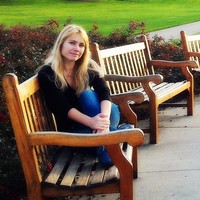- Post-Socialist Societies, Cultural Studies, Popular Culture, Critical and Cultural Theory, Body politics, Borders and Borderlands, and 15 moreBorder Theory, Baltic Sea Region Studies, Estonia, Baltic Studies, Semiotics, Cultural Semiotics, Yuri Lotman, Mega Events, Biopolitics, Georgia, Ukrainian Studies, Austria, European Studies, Polish Studies, and Nationalismedit
Research Interests:
Research Interests:
Research Interests:
Research Interests:
Research Interests:
Research Interests:
Research Interests:
Research Interests:
Research Interests:
Research Interests:
Research Interests:
Статья посвящена анализу оценок представителей различных социальных групп Казани (активистов – градозащитников, чиновников, бизнес-сообщества и населения) текущей политики сохранения, использования и развития культурно-исторического... more
Статья посвящена анализу оценок представителей различных социальных групп Казани (активистов – градозащитников, чиновников, бизнес-сообщества и населения) текущей политики сохранения, использования и развития культурно-исторического наследия города. На основании серии экспертных интервью и опроса жителей, проведенных в 2011 - 2012 годах , показывается неоднородность позиций и мнений внутри каждой из групп относительно способов городского управления архитектурным наследием, и возможностей их участия в этом процессе .
The paper analyzes the current policy of maintenance, use and development of the Kazan’s cultural heritage from view of different social groups (activists, officials, business community and populace). On the base of experts interviews and survey, carried out in 2011-2012, it is shown the heterogeneity of positions and opinions within each of these groups on the perfect approach to management of the cultural heritage and inequality in access in decision making process.
The paper analyzes the current policy of maintenance, use and development of the Kazan’s cultural heritage from view of different social groups (activists, officials, business community and populace). On the base of experts interviews and survey, carried out in 2011-2012, it is shown the heterogeneity of positions and opinions within each of these groups on the perfect approach to management of the cultural heritage and inequality in access in decision making process.
Research Interests:
Research Interests:
В статье предпринимается попытка осмыслить практики гражданского активизма в отношении оспариваемых городских пространств с позиции культурсоциологической перспективы как событий — перформансов. Эмпирической базой работы стали случаи... more
В статье предпринимается попытка осмыслить практики гражданского активизма в отношении оспариваемых городских пространств с позиции культурсоциологической перспективы как событий — перформансов. Эмпирической базой работы стали случаи протестных акций 2010–2011 гг., организованные в защиту исторического центра Казани, которые анализируются как «успешные» или «убедительные» в своем воздействии на городские власти.
Research Interests:
The article explores the strategies of cultural production, transmission and consumption of popular culture within media convergence. I analyse internet-communities’ discussions of the Russian reality TV show ‘Dom-2’ to reveal the... more
The article explores the strategies of cultural production, transmission and consumption of popular culture within media convergence. I analyse internet-communities’ discussions of the Russian reality TV show ‘Dom-2’ to reveal the transformation of the ‘traditional’ distinction between producers, celebrities and audiences. I argue that the media convergence that questions the border between formats, genres and communication systems does not actually erase those boundaries, but rather creates new ones, while the consumer practices adopt new forms.
